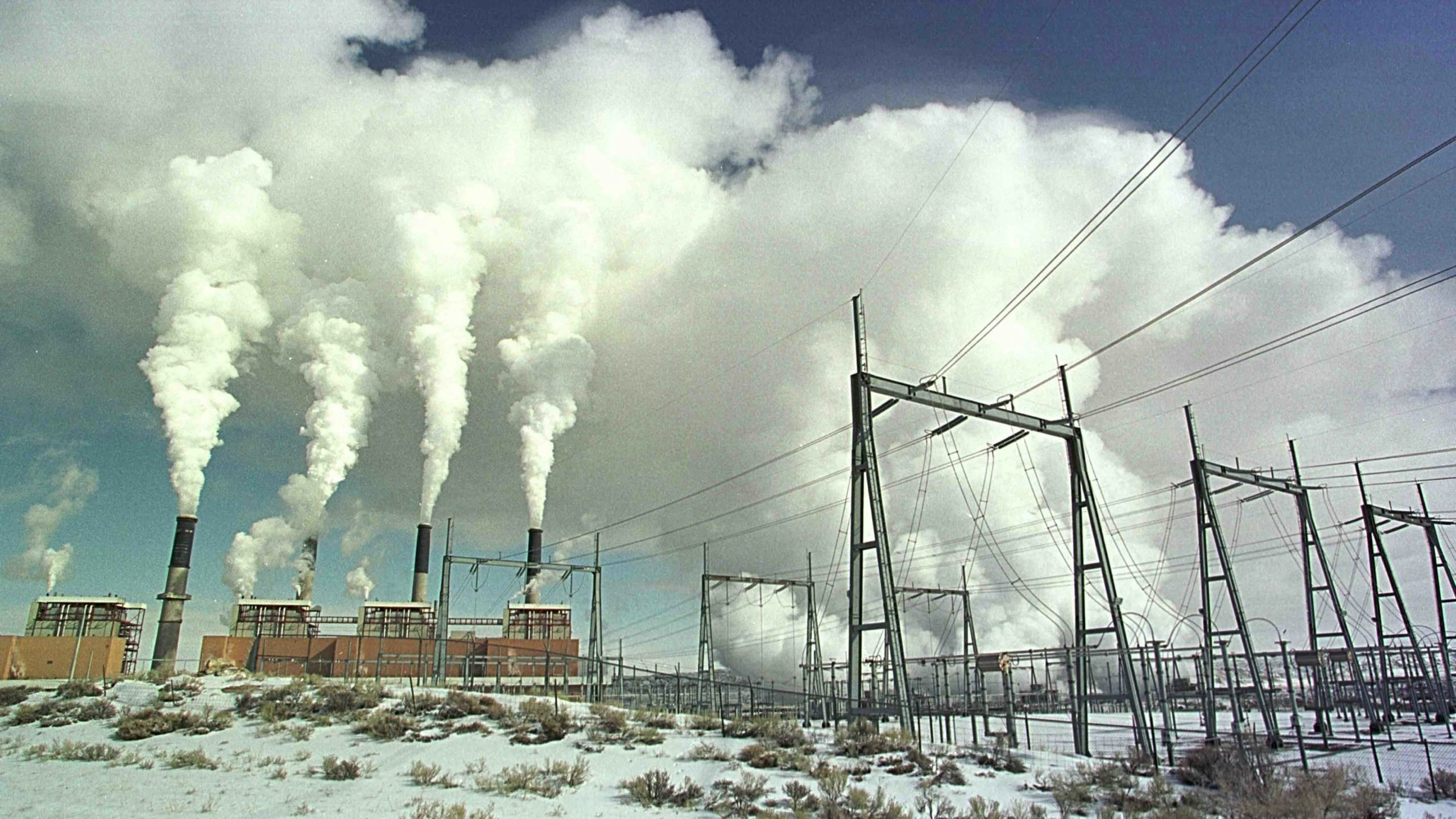The Wyoming Department of Environmental Quality (DEQ) wants to increase its emission fees on Wyoming energy producers despite President Donald Trump signaling a much different direction for U.S. energy policy when he took office Monday.
DEQ is requesting approval from the Wyoming Legislature for a 108% rate hike from energy producers on their emissions, which includes carbon dioxide, from $34.50 to $72.07 per ton.
On Monday, Trump issued an executive order titled “Unleashing American Energy,” which will eliminate federal incentives for green energies and aim to simplify and expedite the permitting processes for all energy production.
The rate increases are for DEQ’s Title V permits, which are part of the Clean Air Act amendments of 1990, a section that governs certain emissions from large point-source emissions. Wyoming has operated its own permitted program since receiving Environmental Protection Agency approval in 1999.
There are 114 facilities subject to the Title V permitting fees in Wyoming.
Why The Increase?
DEQ Director Todd Parfitt told the Joint Appropriations Committee on Tuesday that a fee has to be charged to run the Title V program since the Clean Air Act forbids using other money to support it.
The committee approved DEQ’s requested supplemental budget with the fee increases attached on a 10-2 vote. State Rep. John Bear, R-Gillette, and Sen. Darrin Smith, R-Cheyenne, voted against it.
The rate on emissions output has stayed flat from 2014-2024 at $34.50 per ton, but in 2023, DEQ began charging a $500 application fee with an additional $75 per hour fee to review each application.
In early 2024, DEQ indicated to the Legislature that the agency would need to increase its fees by the end of the year, but estimated a modest increase of $13 per ton. By December, they significantly increased that to $72.07 per ton.
Bear said people in the minerals industry have expressed concern to him about the rate increases, which he believes amount to a tax.
“Anytime you put a fee on a power generator that eventually ends up in the ratepayer’s bills, and so we all pay these taxes,” Bear said.
Parfitt said Wyoming’s 10 biggest emitters pay about 50% of the state’s total emission fees, mostly made up by public utility companies, but also trona mines.
He said the fee change came about as a result of DEQ realizing it wasn’t going to be able to cover all its costs because of the number of air quality rules passed by former President Joe Biden’s administration in the last two years, including 89 in 2024 alone. Parfitt said other states have been noticing the impact of these rules as well.
After recalculating their revenue, Parfitt said his agency landed on the price.
“The emissions projected are going to be less than what we expected,” Parfitt said.
Rep. Abby Angelos, R-Gillette, asked Parfitt if he anticipates increased revenue and emissions as a result of the Trump administration taking over.
Parfitt said although he expects new rules on emissions controls, he doesn’t expect them to go into effect very quickly or increase his department’s revenue.
“We’re still (expecting) quite a bit of reduced emissions over the previous year that we’re going to have to deal with from a cost perspective,” he said.

Fewer Emissions Means Less Money
When a coal plant transitions to natural gas, it results in a significant reduction in overall emissions. This is the process being undertaken at a number of Wyoming facilities like the Dave Johnston Power Plant in Glenrock.
“As they convert from coal to gas, they’re emitting fewer of the pollutants that we assess the fee for, therefore the cost is going to go up,” Parfitt said.
Parfitt said there is a bit of an ironic funding model at play when it comes to Title V fees because of its structure, as less revenue is generated with the fewer emissions that producers create, thus creating the need for more fees to be raised on a state level.
The EPA offers a suggested price each year for the permit fees, which the new DEQ rates would exceed by nearly $9 per ton. Historically, DEQ’s rates have fallen below the suggested EPA rates for every year since at least 2000, and Parfitt said Wyoming has had the lowest rate in the country for the last 12-13 years.
Even with the fee increase, Parfitt said Wyoming is well below other states in the region for Title V rates.
Pete Obermueller, executive director of the Petroleum Association of Wyoming, told Cowboy State Daily members of his organization aren’t opposed to paying the higher fees, but would prefer a more incremental rate increase than suddenly doubling them.
“They would prefer incremental cost increases that help them better predict their bottom line,” he said.
Oil and gas companies paid around $4.5 million in agency fees and $2.4 billion in taxes to Wyoming in 2023, according to the Petroleum Association.
For smaller facilities, the rate increases won’t likely make a substantial difference to their bottom lines, but for bigger facilities like the Jim Bridger Power Plant in Rock Springs, it would result in a more than $500,000 increase in their annual Title V payments compared to the $490,364 they paid in 2023.
Bear asked Parfitt if Wyoming would be better off if it had the federal government run its Title V program since the emissions revenue is getting so small. Parfitt’s answer was a definitive no, saying it wouldn’t save Wyoming producers any money.
“The permitting backlog that you would experience with EPA, they’re not structured, they don’t have the bandwidth at the region to be able to implement the program,” Parfitt said.
Leo Wolfson can be reached at leo@cowboystatedaily.com.





